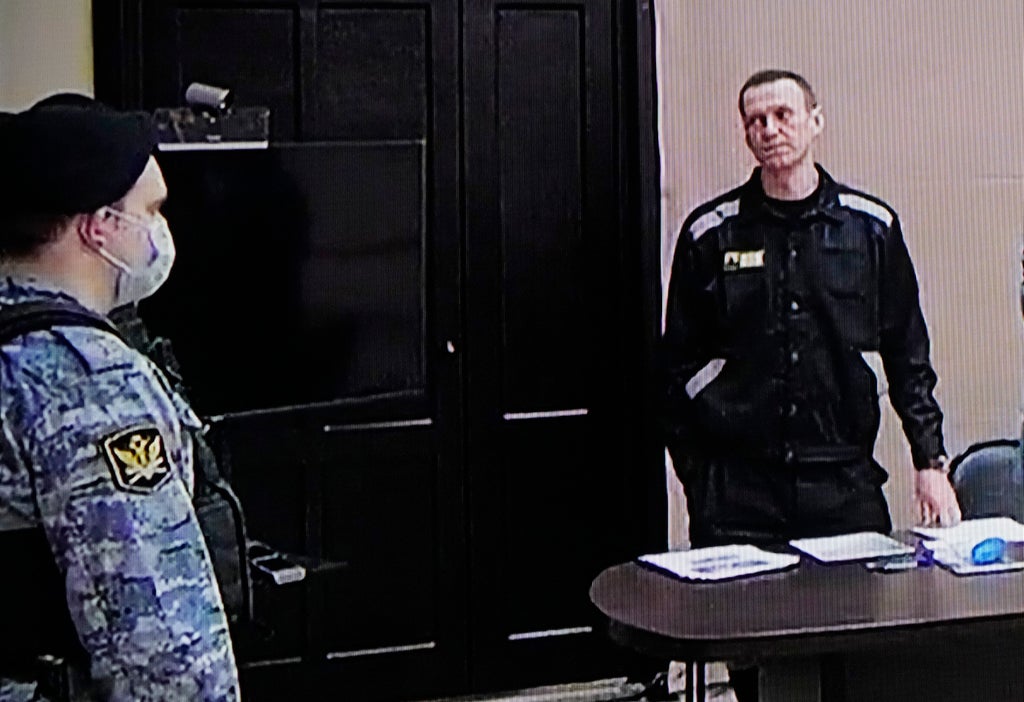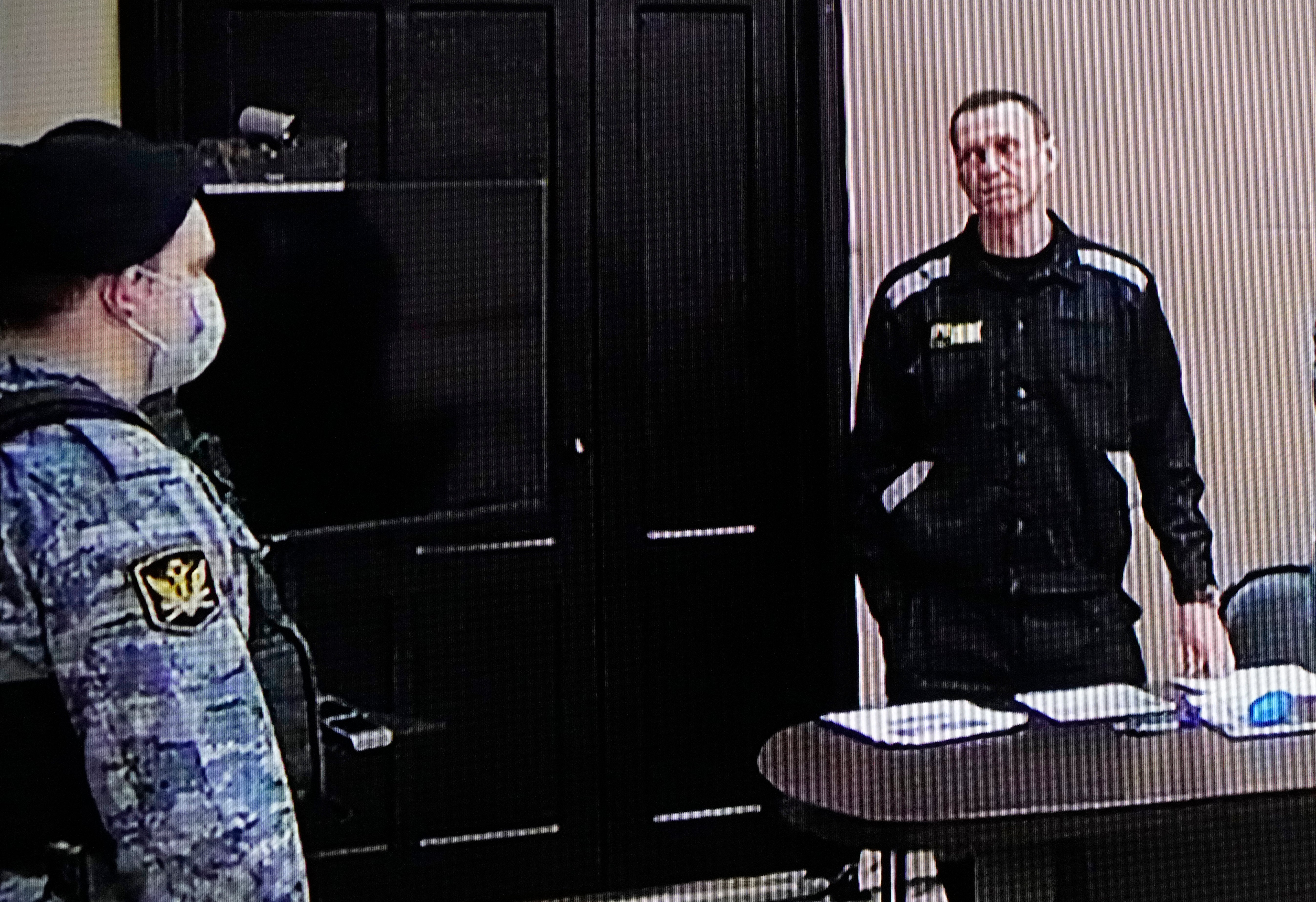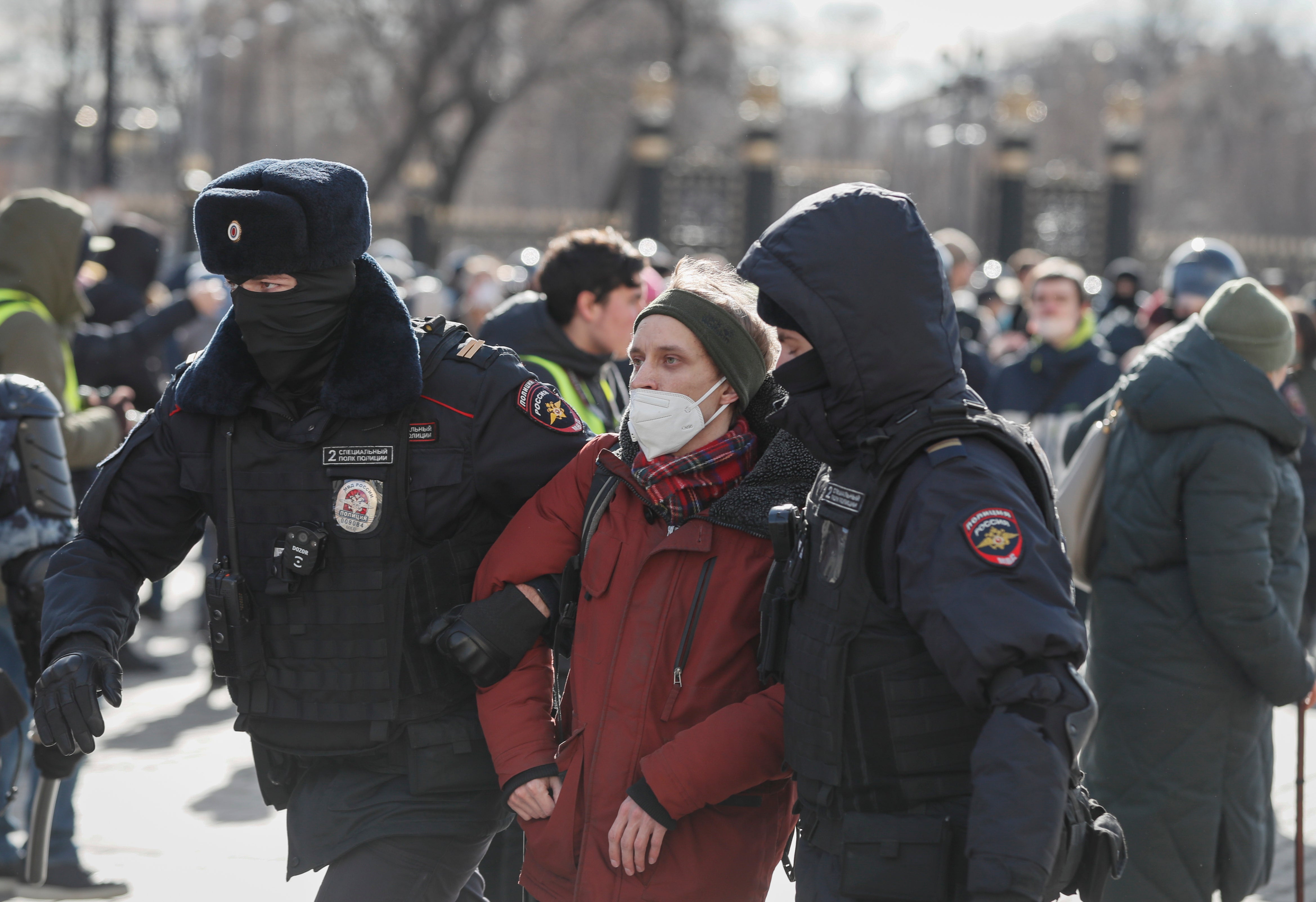
Arch Kremlin critic Alexei Navalny has been convicted of fraud and contempt of court and sentenced to nine more years in a maximum security prison following what campaigners and supporters described as a “sham trial”.
A Russian judge also ruled that Mr Navalny would have to pay a fine of 1.2m roubles (about £8,600).
Mr Navalny is currently serving another prison sentence of two and a half years in a prison colony east of Moscow.
His associates have said the new trial was intended to keep Mr Navalny, president Vladimir Putin’s long-time foe, behind bars for as long as possible.
Mr Navalny has rejected the charges as bogus.
Marie Struthers, Amnesty International’s director for eastern Europe and central Asia, said: “This sham trial, attended by prison guards rather than the media, breaks international human rights law and clearly deprives Navalny of his right to a fair trial.
“Alexei Navalny was detained under politically motivated charges and should never have been imprisoned in the first place.”
She added: “A closed-door trial without public access only makes one more suspicious about new human rights violations the Russian authorities are trying to hide.
“They must ensure Navalny’s right to a fair trial is upheld by making it accessible to the public and held in accordance with domestic and international law.”
Boris Johnson said his thoughts are with Mr Navalny’s family as he “continues to show incredible bravery in standing up to Putin’s regime”.
“I think we’ve seen the sort of trumped-up charges that Putin uses against those who seek to hold him to account, or those that seek to engage in the democratic process, and this is sadly a continuation of that,” a spokesperson for the prime minister said.
Mr Navalny, Russia’s most prominent opposition figure, is already serving a two-and-a-half-year sentence for parole violations.
State prosecutors had asked the court to move him from a jail in east Moscow to a maximum security facility for 13 years on charges of fraud and contempt of court.
Mr Navalny was accused of stealing $4.7m (£3.5m) of donations received by his now banned political organisations. Judge Margarita Kotova said Mr Navalny had committed a criminal offence by publicly insulting the court.
Earlier, the judge confirmed he had pleaded not guilty to the fraud charges against him.
A gaunt-looking Mr Navalny stood beside his lawyers in a room filled with prison security officers as the judge read out the accusations against him. The 45-year-old seemed unfazed, looking down as he flipped through court documents.

Mr Navalny was immediately arrested when he returned to his homeland from Germany, where he had received treatment after being poisoned with a Soviet-era nerve agent during a visit to Siberia in 2020.
He blames Mr Putin for the attack, but the Kremlin claims to have seen no evidence that Mr Navalny was poisoned, and denies any Russian role if he was.
After the last court hearing in relation to his case, on 15 March, Mr Navalny struck a typically defiant tone, writing on Instagram: “If the prison term is the price of my human right to say things that need to be said ... then they can ask for 113 years. I will not renounce my words or deeds.”
Russian authorities have cast Mr Navalny and his supporters as subversives, asserting that he is determined to destabilise Russia with backing from the west.
Many of his allies have fled Russia rather than face restrictions or jail in their home country.
Mr Navalny’s opposition movement has been labelled “extremist” and shut down, although his supporters continue to express their political stance, including their opposition to Moscow’s military intervention in Ukraine, on social media.
He has also been vocal in his opposition to Mr Putin’s war with Ukraine.

Protests against the conflict have broken out in major cities across Russia, and earlier this month Mr Navalny called for people to protest.
“I call on everyone to take to the streets and fight for peace,” his spokesperson wrote on Twitter at the time.
Mr Navalny’s account tweeted: “We – Russia – want to be a nation of peace. Alas, few people would call us that now.
“Let’s at least not become a nation of frightened silent people. Of cowards who pretend not to notice the aggressive war against Ukraine unleashed by our obviously insane czar.”
Some reports estimate that at least 15,000 Russians have been detained for protesting against the invasion.







